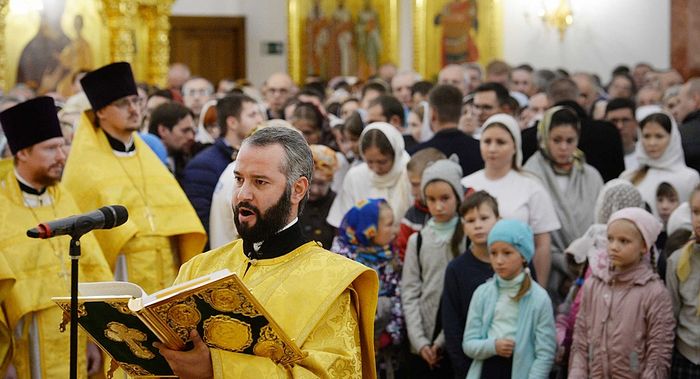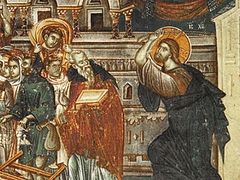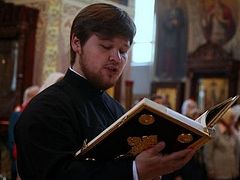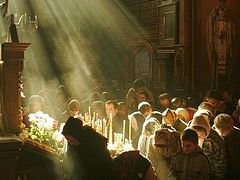Moscow, December 23, 2019
In his report at the Moscow Diocesan meeting on Friday, December 20, His Holiness Patriarch Kirill touched on the subject of the language of the Divine services, allowing for the possibility of celebrating in modern Russian rather than Church Slavonic in those parishes where the people desire and would accept it.
In the 1990s, the people were returning to the Church in droves and parishes were filled, with or without any special effort from the priests. However, today, twenty-five years later, Pat. Kirill said, the people have come to expect more from parish life, and firstly are seeking to actively participate in worship, “to understand its meaning,” reports Patriarchia.ru.
The primate quoted St. Theophan the Recluse, who said: “Our liturgical chants are all edifying, profound and sublime. In them is found the whole of theological science, of Christian morality, and all the consolations, and all the terrors. He who is attentive to them can do without any other Christian teaching books.”
Pat. Kirill also noted that the issue of the understandability of the services was raised by several priests in conversations with him. However, he does not believe that translating the entirety of the services into modern Russian is the answer, though he noted that services for new saints, while composed in Church Slavonic, intentionally avoid archaic grammatical or lexical constructions. He also recalled that in the early 20th century the Synod approved the editing and republishing of the Lenten Triodion and the Pentecostarion, and that this work continues with the Octoechos and Menaion.
“However,” Pat. Kirill continued, “the main difficulty in the understanding of liturgical texts by lay people stems from their very content, from the height of dogmatic teaching, the poetic features and the saturation of Biblical images, which are not easy to understand for those who have a superficial knowledge of Church teaching and Biblical history.”
Therefore, it is the priest’s task to help his people understand the meaning of the services, the Patriarch said. Texts could be printed in modern Russian to distribute to the people, as is happening in many churches, he noted.
“I also believe it is possible that where communities are ready for this, Apostolic and Old Testament readings, which are often the most difficult to understand, should be heard in Russian. The same applies to the reading of the Gospel at the services and at the reading of the entire text of the fourth Gospel in Holy week, which in practice is often distributed throughout Lent,” Pat. Kirill proposed.
“At the same time, rectors should listen to their parishes: The introduction of these practices will be received with gratitude in some places, while elsewhere it may cause rejection due to another long-term custom,” he explained.
“It is important to remember that here the main goal of a priest is not to realize something that seems to him theoretically correct, but to help parishioners increase their love for worship,” His Holiness he added.
The Russian primate also emphasized that priests should take the opportunity to explain Church hymns during their homilies.





